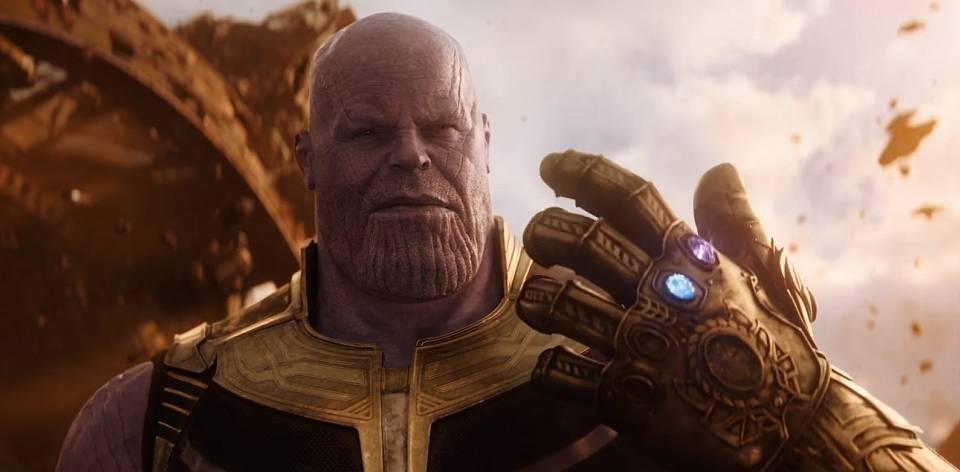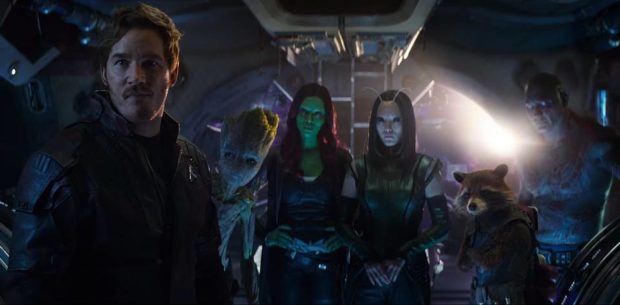Let’s not mince words: the AVENGERS: INFINITY WAR trailer fulfils a promise that has been a decade in the making, bringing together the varied elements of the Marvel Cinematic Universe into one spectacular outing. The fan cheers will be many, with the trailer (embedded below) undeniably raising the already high bar Marvel Studios has set for blockbuster storytelling. Yet another bar has been raised as well, with the barrier to entry becoming even more complex by the time the film rolls out next April/May.
Even as the joyful Thor: Ragnarok hit cinemas, we heard pundits pondering whether they could jump aboard without seeing the first two. While it was a fun standalone, it was also filled with characters and references that relied on prior knowledge, and at least a passing knowledge of Thor: The Dark World and Avengers: Age of Ultron‘s conclusions. Of course, every series will have its own internal continuity, but there is something unique about Marvel’s project to date. Indeed, by the time Guardians of the Galaxy Vol. 3 rolls around in 2020, we’ll have a series that almost as long as the James Bond franchise – and one that only took a fifth of the time to get there.
The success of these films relies in part on that storied history. The very fact that decades of Marvel Comics exist allows for a certain amount of shorthand in cinematic storytelling. In Spider-Man: Homecoming, Marvel dispensed with the origin story entirely for a reinterpretation of a Millennial Peter Parker who grew up in the shadow of Tony Stark and his tower. This was also possible thanks to the many previous appearances of Spidey on screen, and the well structured universe Marvel had created around him.
Yet as the films start to mirror the comic book formatting even more closely, with regular biannual installments punctuated by events, the Marvel Cinematic Universe begins to carry some of the weight of its printed counterpart’s woes. The comic books themselves have become so impenetrable that publishers are constantly looking for new tactics to draw in increasingly dwindling audiences, drawing criticism for endless reboots and crossovers. These blockbuster films are not so much serving as giant advertisements for the comics, but a more streamlined version of continuity that exacerbates the printed industries outdated practices.
In the trailer, as brief and teasing as it is, there’s a recognition of this with the narrative flashback opening that builds into Marvel’s self-celebratory logo. What follows is a series of recognisable images of characters and hitherto unseen interactions between disparate corners of the MCU. Much of the footage seems to concentrate on Thanos, a villain who has appeared briefly in a handful of films, and Black Panther, who has his own film coming out next year. By its very nature, the teaser trailer is shorthand for something bigger. Then again, without the context of 18 other films, potential new audience members are merely confronted with a whole lot of impenetrable symbolism.
On the flip side, the $13.4 billion global box office to date (and counting) is perhaps indicative that punters are yet to be put off by the long-term commitment that Marvel has required of its viewing audience to date. In fact, it’s the three event films (Avengers, Avengers: Age of Ultron, Captain America: Civil War) that have accounted for almost a third of that total global bank, and there’s little doubt that AVENGERS: INFINITY WAR will add another seven-figure sum to that total tally.
As Marvel builds to a fourth (and as yet untitled) Avengers team film in 2019, there will be an entire generation of film-goers born since 2008’s Iron Man who have come of age in the interim. Armchair franchise management would dictate that Disney and Marvel will need to create strategies to mitigate replicating comic book continuity issues on screen. Otherwise, Thor’s final quip in this trailer might be echoed by an entire generation: “Who the hell are you guys?”
AVENGERS: INFINITY WAR is released in Australia on 25 April 2018, and on 4 May 2018 in the US, from Disney.





